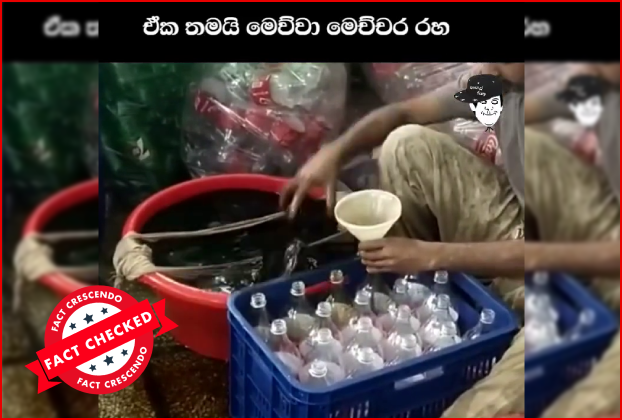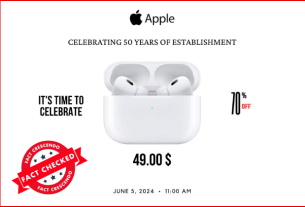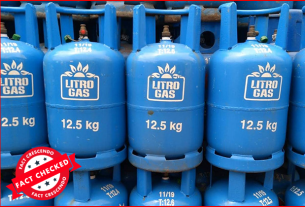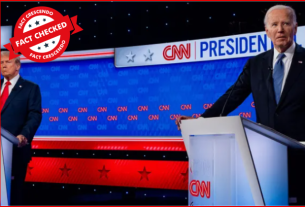Subscribe to our WhatsApp Channel
The misuse of social media platforms to tarnish the reputation of major companies is a growing concern. Misleading content, such as videos, images, and other forms of media, is being deliberately spread to distort the public perception of these companies.
Social Media Posts
A video circulating on social media spaces in Sri Lanka purportedly depicts the bottling and manufacturing process of Coca-Cola, showing individuals filling empty Coca-Cola bottles with a beverage resembling Coca-Cola in an unsanitary manner.
We saw some international posts also.
One month ago, the same video above was also seen and uploaded on YouTube, stating that it is the best way to recycle Coca-Cola bottles. See the full video below:
The 21-second video clip went viral in India and many APAC countries. The Fact Crescendo Cambodia team also found the clip making rounds among locals.
The video falsely portrays a scene in a warehouse. It shows a man refilling used Coca-Cola bottles with a concoction from a tub, using a funnel to pour the fake mixture into the bottles. These bottles are then repackaged for resale, creating a misleading narrative about the Coca-Cola bottling process.
It’s crucial to reiterate that this video, which has caused significant concern, does not represent the actual Coca-Cola bottling process.
Fact Check
We checked for the viral video’s origins, and even though the exact footage could not be traced, we couldn’t find any local or international media reports involving the alleged footage either. Therefore, we reached out to Coca-Cola for their version.
No Connection with Coca-Cola Company:
In an email, a Coca-Cola Spokesperson said, “The Coca-Cola Company is not involved with the video in question, nor do we have any information about who created it. Quality and safety are part of the foundation of Coca-Cola’s business. We follow strict processes to monitor the quality of our products and comply with global manufacturing standards.”
Coca-Cola Company
Founded in 1886, The Coca-Cola Company is an American firm principally involved in producing and distributing syrup and concentrate for Coca-Cola. This sweetened carbonated beverage is a global emblem of American tastes and a cultural icon in the country.
They use sustainable sourcing methods, water replenishment, packaging recycling, and carbon emission reductions throughout our value chain to try and make a positive difference in people’s lives, communities, and the environment.
Coca-Cola and their bottling partners employ more than 700,000 people, contributing to the global economic development of local communities.
The Coca-Cola Company Link | Archived Link
According to Coca-Cola HBC, in addition to their own quality and food safety regulations and The Coca-Cola Company’s worldwide standards, their dedication to creating and bottling premium products is supported by the International Standards ISO 9001 and ISO 22000.
They have equipped all their refillable bottling production lines with electronic bottle inspection technology to detect and reject even the slightest anomaly in their beverages.
Coca-Cola HBC Link | Archived Link
The scenes below show the steps involved in producing Coca-Cola beverages. You will observe how a state-of-the-art facility combines carbonated, filtered, and bottled components.
The production process of Coca-Cola at a manufacturing facility typically involves the following steps:
- Water Filtration: The production process begins with filtering water to remove impurities and ensure high-quality water for the beverage.
- Mixing Ingredients: Sugar and other sweeteners are mixed with water to create a syrup. This syrup is combined with natural flavours, caramel colouring, phosphoric acid, and caffeine to form the base of Coca-Cola.
- Carbonation: The syrup is mixed with carbonated water to add fizz and carbonation to the beverage.
- Quality Control: Quality control measures are in place throughout the production process to monitor the taste, color, carbonation levels, and overall quality of the Coca-Cola being produced.
- Bottling and Packaging: The final Coca-Cola product is bottled in glass or plastic containers, cans, or other packaging formats. The bottles or cans are sealed, labelled, and packaged for distribution.
- Distribution: Once the Coca-Cola products are packaged, they are distributed to various locations, such as retailers, restaurants, vending machines, and other points of sale, for consumers to purchase and enjoy.
- Cleaning and Maintenance: Regular cleaning and maintenance of equipment and production facilities are essential to ensure hygiene, safety, and efficiency in the production process.
Similar claims of purportedly refilling Coca-Cola in an unhygienic manner had previously been debunked!
A fact check conducted by AFP South Africa found that a viral series of images related to a similar incident took place in Gujranwala district, Pakistan, in 2015. The AFP Fact Check can be reached here. The AFP team has found the details below.
Location: The scenes originated from a fraudulent soft drink manufacturing facility in Gujranwala district, Pakistan, not from any Coca-Cola manufacturing plant. Authorities in Pakistan, including district police and food-related authorities, conducted raids on the facility and arrested four individuals involved in the fraudulent activities.
Nature of the Incident: The individuals involved in the incident were found to be producing a beverage similar in appearance to Coca-Cola but using unhealthy ingredients and unsanitary practices. They filled empty Coca-Cola bottles with this counterfeit drink and distributed them to the market.
Confirmation by Authorities: The Pakistani authorities, including the district police, confirmed the incident through their official social media platforms, such as Facebook. Additionally, several Pakistani and international news websites reported on the raid and subsequent arrests. The few web articles can be found here and here.
Follow us and stay up to date with our latest fact checks.
Facebook | Twitter | Instagram | Google News | TikTok
Conclusion:
The claim that the viral video depicts Coca-Cola’s bottling and manufacturing process in unsafe conditions is false. While the origins of the exact footage could not be traced, similar setups of alleged Coca-Cola filling factories in an unhygienic manner have been previously debunked.
Coca-Cola’s production process is highly automated and follows strict quality control measures to ensure consistency in taste and quality across all batches. A Coca-Cola spokesman confirmed that the company was not involved with the video in question and was unaware of who created it.
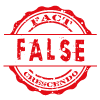
Title:Coca-Cola firmly Denies any connection to the Viral Video Of Purported Coca-Cola Bottling Process in Unsanitary Conditions!
Written By: Fact Crescendo TeamResult: False



